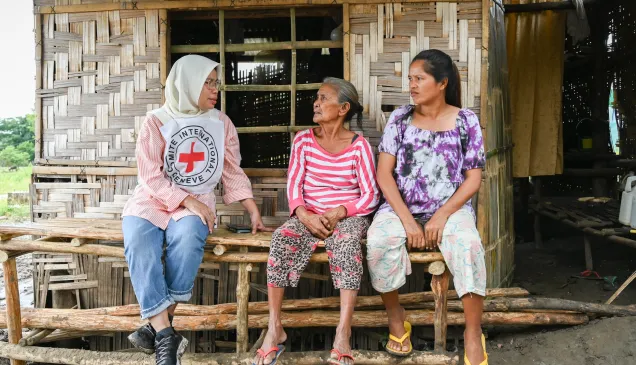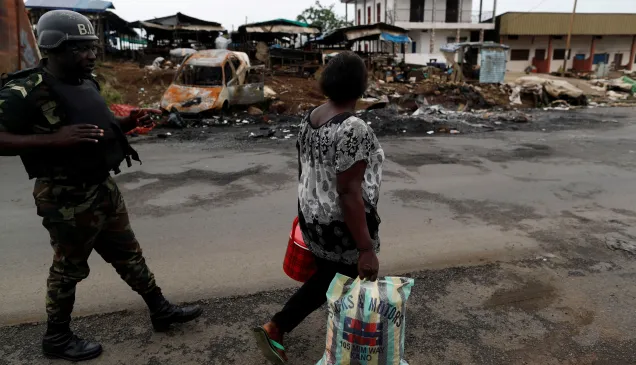Marawi: Boosting livelihood opportunities for families of missing persons
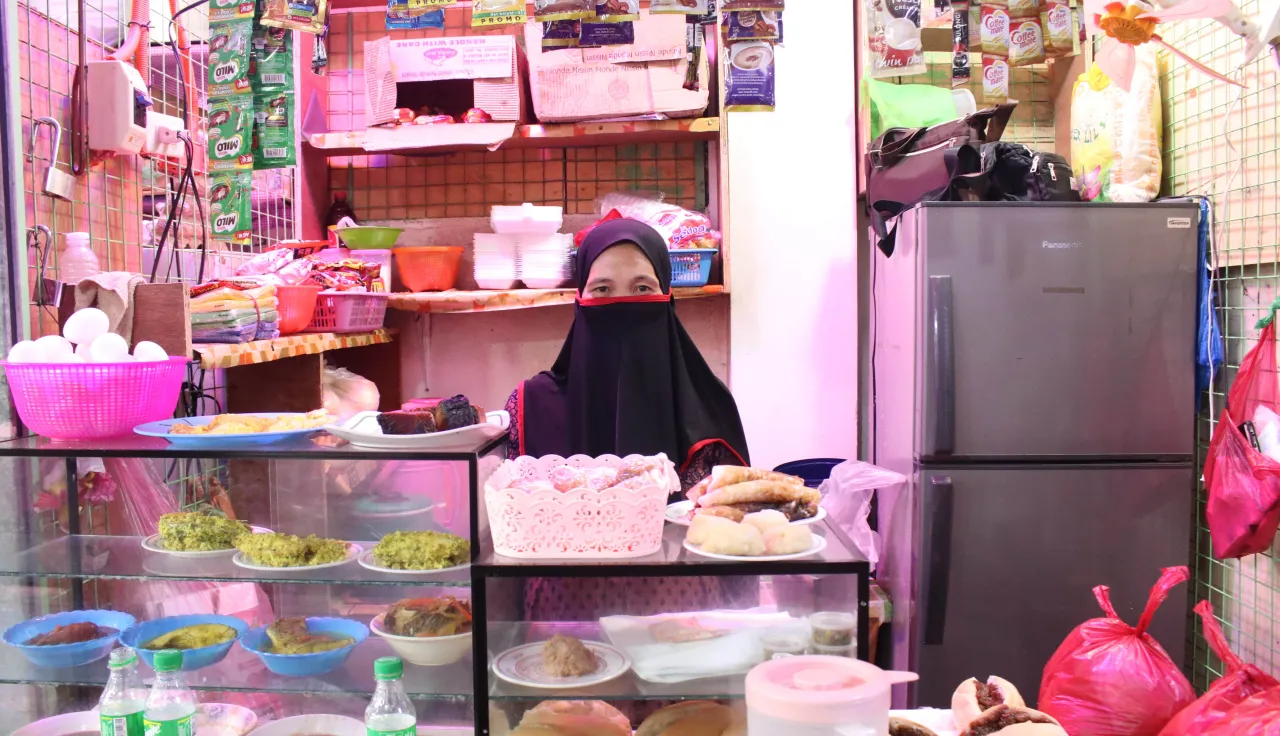
Families of people who went missing in Marawi are rising above their challenges through ICRC’s microeconomic initiatives.
In 2017, thousands of people were displaced by a five-month armed conflict in Marawi City, Lanao del Sur, southern Philippines. Among those who were deeply affected were families whose loved ones were trapped and went missing in the crisis.
These families struggled emotionally, socially, psychologically. And since many of those who remain unaccounted for were the breadwinners, family members left behind also struggled financially. The search process was often an additional drain on the family's fortune as spent money on transport and other costs searching for news of their missing loved one. In many situations, the families could not afford to continue the search.
The ICRC, which has been helping families of missing persons (FoMs) in the Marawi conflict through various programs, recently provided microeconomic initiatives (MEI), an income-generating programme implemented through a bottom-up approach to enable FoMs to revive or expand their small businesses or start new ventures.
The selected FoMs who met the vulnerability criteria were asked to present their business proposals before receiving the cash grants from ICRC, which then monitored the implementation phase.
Read more about how these FoMs managed to start or grow their business with the help of MEIs.
*All names in the stories were changed.
Raimah: Sewing beautiful gowns for brides
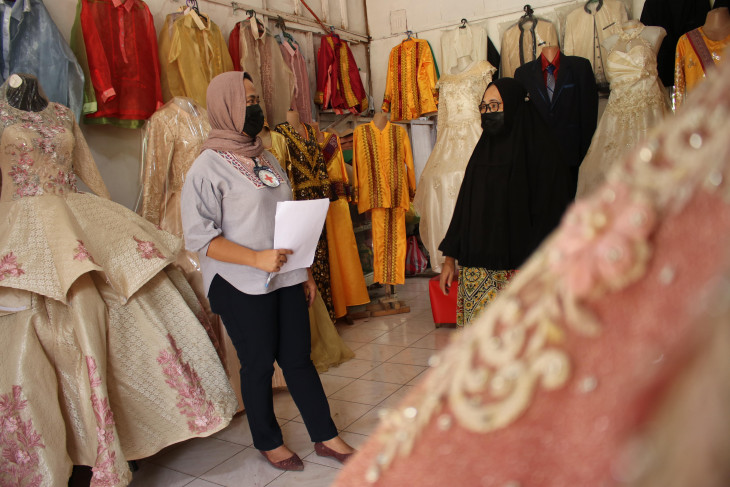
The strategic location of Raimah's wedding gown shop helps draw in more customers.
As skilled tailors, 52-year-old Raimah and her husband Ali earned a living by making wedding gowns and suits.
But things took a turn for the worse when the Marawi conflict broke out in 2017. Their beloved store was reduced to rubble and they were unable to save any of their belongings.
Worse, Ali was among those who went missing.
We were a perfect pair. But when you lose your other half, it's never the same again.
With eight children and no husband to support her, Raimah had to drastically downsize her life to make ends meet.
She opened a small tailoring business at the house she rents with her family in Lanao del Norte. After raising some money, she went back to making bridal gowns. But with limited capital and snowballing expenses, she could only make a few gowns and costumes.
Using the cash she received from ICRC, Raimah purchased more textiles for new designs. This let her increase the gowns’ rental fee to PHP 6,000 a day.
With business picking back up, Raimah plans to buy a bigger sewing machine to make new and better designs and to give her children capital to put up their own business. She started accepting commissions to sew dresses for events like weddings and kambae (enthronement ceremony).
“I thank Allah for his blessings, though I can’t help but see my husband in every dress I sew. Just like how these gowns are incomplete without a suit, I’m incomplete without my pair,” she said.
Haniya: Running a successful restaurant in Marawi
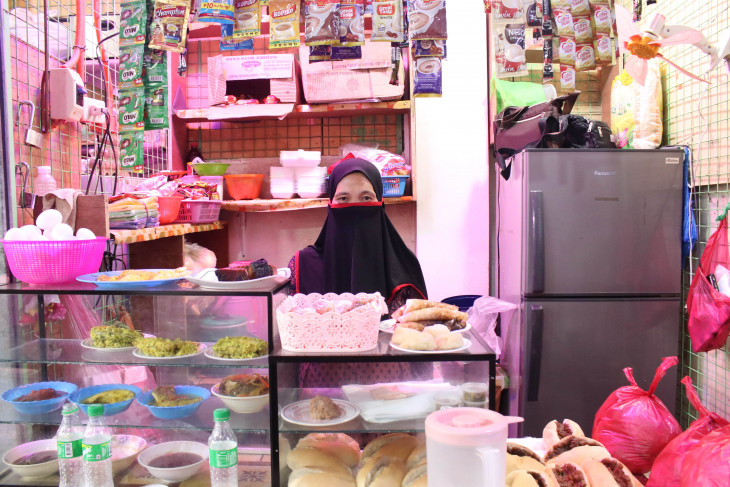
"My new restaurant may be smaller compared to what I had, but it helps me get by, and for that I am grateful," said Haniya.
Haniya, 46, also lost her husband Amir, their family’s breadwinner, to the Marawi conflict. The couple used to own three successful restaurants which Amir made sure were well-maintained.
Amir remains missing, to date. “It’s sad how things can change in a flick of a finger,” Haniya said.
She and her four children moved to an evacuation center until they were relocated to a transitional shelter. Haniya tried to run a sari-sari store there, but the competition was tight.
After this setback, Haniya thought of running a restaurant again. She borrowed money from a relative to rent a small place in a market in Marawi City.
Doing everything from getting ingredients to cooking food, Haniya struggled as a one-person team.
With ICRC’s assistance, Haniya purchased equipment for her food business: a refrigerator, a rice cooker, and a gas stove. For someone who had used firewood to cook, these tools could be a game-changer: She can produce more food and sell more products.
Haniya’s new restaurant is a hit. As her sales and workload increased, she had to hire two daily workers to help her and she plans to expand her food business by transferring to a bigger place.
Dionisio: Yielding a bountiful harvest of corn

"I am grateful for the landowner and for ICRC's cash grant. The yield provides food on the table," Dionisio said. "My children and I also work in great harmony. I hope I am making my wife proud wherever she is."
Dionisio lives a humble life in a rural community in Lanao del Norte. Their house, where there is no electricity, is a one-hour walk from the main road.
Although he was lucky to be granted a piece of land without rent, Dionisio still struggled to sustain his livelihood. The 50-year-old farmer harvests an average of 20 sacks of corn that his family mostly uses for their personal consumption.
Most times, Dionisio is uncertain if he will make it to the next planting cycle. His wife had to work as a house helper in Marawi City to support the farm and their family of eight.
When the conflict broke out, his wife went missing.
It's hard to think that what led to her loss is our financial struggle. I need to work hard to at least make up to her. I think of her every day.
He accepted work-for-pay services and developed a backyard garden and small barn in addition to his farming. His children also pitched in to support the family but they remained financially unstable and their situation was made worse by the COVID-19 pandemic.
Dionisio proposed to expand his farming using ICRC’s cash assistance. Since receiving it in September 2020—in time for cropping season—he has harvested 90 sacks of corn. He gained enough profit which he then used for the cropping season in April 2021.
With the increase in yield, Dionisio was able to buy more farming materials and expand the farmland. He expects to have another bountiful harvest this August.
Berta: From selling banana sweets to having a banana farm

Berta hired laborers who had 215 banana trees planted in November 2020. They expect to harvest the bananas by the end of this year and they have negotiated its purchase with an interested buyer.
Berta, a 55-year-old widow from Lanao del Norte, fainted when she learned that her youngest son Jomar was trapped in Marawi City when the conflict broke out. She spent several nights crying, hoping for Jomar to come out alive.
“I waited for him every day, but he never returned. We took care of each other,” she said while sobbing. As the only unmarried child, Jomar supported his mother by working as a construction worker in Marawi.
Berta became part of the ICRC’s accompaniment programme, one of the organization’s many efforts to help families of missing persons. She received emotional support from families who shared the same fate.
Although she was learning to live with the ambiguity, Berta still struggled financially.
To get by, she sold banana cue at the nearby market. With her children, she also cultivated a portion of land that her family owns by planting corn. While these provided Berta income, they were not enough.
The ICRC’s MEI came at the perfect time for Berta. At first, she proposed to develop her family’s corn production. But since the cropping season for corn had passed, Berta chose banana production instead—an initiative that now seems to prosper.
Nanay Ligaya: Reaping what you sow
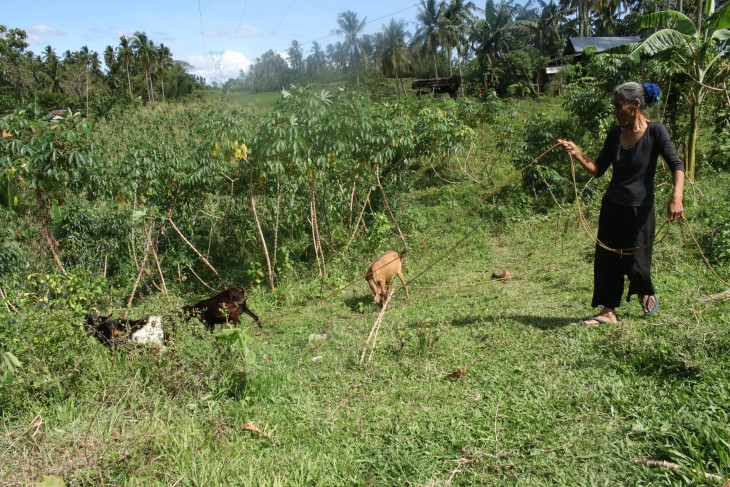
After the harvest in August, Nanay Ligaya plans to produce other quick-harvest crops and fast-growing vegetables so she will continue to earn income in shorter periods of time.
Nanay Ligaya’s son, Abden, also went missing in the Marawi conflict. Like Berta, Ligaya spent nights weeping for her son’s disappearance.
To this day, his whereabouts remain unknown.
Abden worked as a foreman at a private construction company in Marawi City. He was a breadwinner to his elderly parents. Even at ages 62 and 64, the couple still toils at their farm.
Since their son’s disappearance, it has become difficult for Nanay Ligaya and her husband to cope with their needs. They consume most of the corn they produce instead of selling them. COVID-19 restrictions have affected their sales and the monthly allowance they receive from their daughter in Manila.
Nanay Ligaya used the cash assistance from ICRC to buy farming materials for producing corn. She spared some capital for raising goats and producing quick-harvest crops. The corn and sweet potatoes will be ready for harvest this August.
“The capital gave us many possibilities. Salamat sa ginoo,” she said.
Karem: Building back better for his family
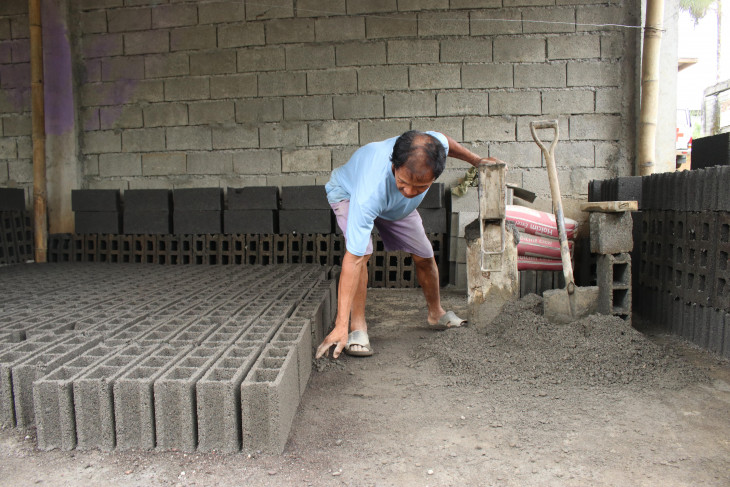
Karem was making hollow blocks when the ICRC team arrived at his house. "Busy days," he said, smiling.
Karem, a hollow-block maker, was hired by a client who was having his house built. For him and his wife, Fatima, this meant income for the coming weeks.
“After this, I will work with another client,” he said, pointing at the nearby vacant lot.
The couple’s business seems to go well. But this was not the case a few years ago.
Like thousands of other people, his family was displaced by the hostilities in Marawi four years ago. They lost not only their house and business, but also their son Imran who remains unaccounted for.
Masakit den so kiyagebaan sa walay, ogaid na mas masakit so kiyadaan sa wata (Losing properties is painful. But what's more painful is losing a child).
Karem’s family sought safety from their relatives. Since then, they have relied on support from the government and humanitarian agencies. He used the cash assistance from the city government to start again through the trade he has known for over two decades: making concrete hollow blocks.
“When we could visit our house in most affected area, there was nothing to save except this hollow-block maker. I use this until now,” he said.
Eventually, Karem used some of his savings and made enough hollow blocks to build their own house in Marawi. But without their son supporting them, it was tough to rebuild their lives. Beyond the emotional toll caused by their son’s disappearance, they faced financial difficulties.
“I spent the last of my money in building this small house,” he said.
Karem used ICRC’s cash assistance to buy sand, cement, and other equipment to expand this business. Fatima keeps records of all their sales and expenses and oversees their budget. Having worked with several clients and hardware stores in the past, Karem has become a sought-after hollow-block maker in their area.
Karem said they were most thankful for not having to stop sending their four children to school.
“It’s Imran’s dream for his siblings. We share that dream,” he said.
Text and photos by Amer Hassan Sanggacala, ICRC communication officer based in Iligan City.

